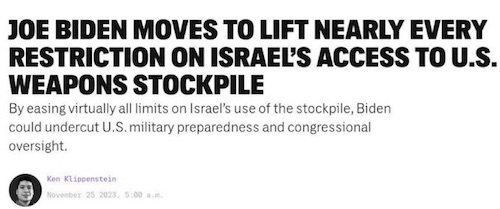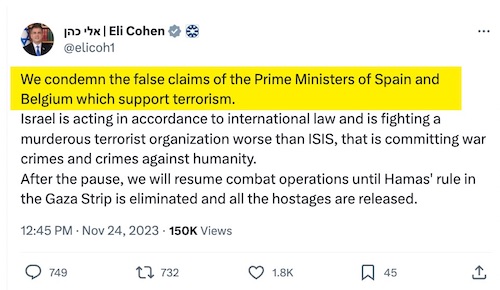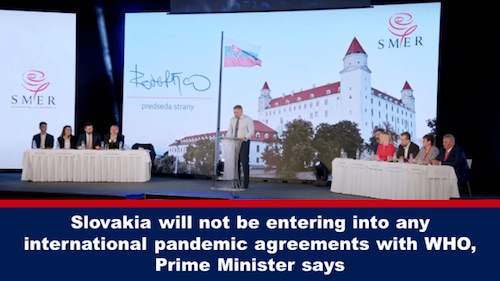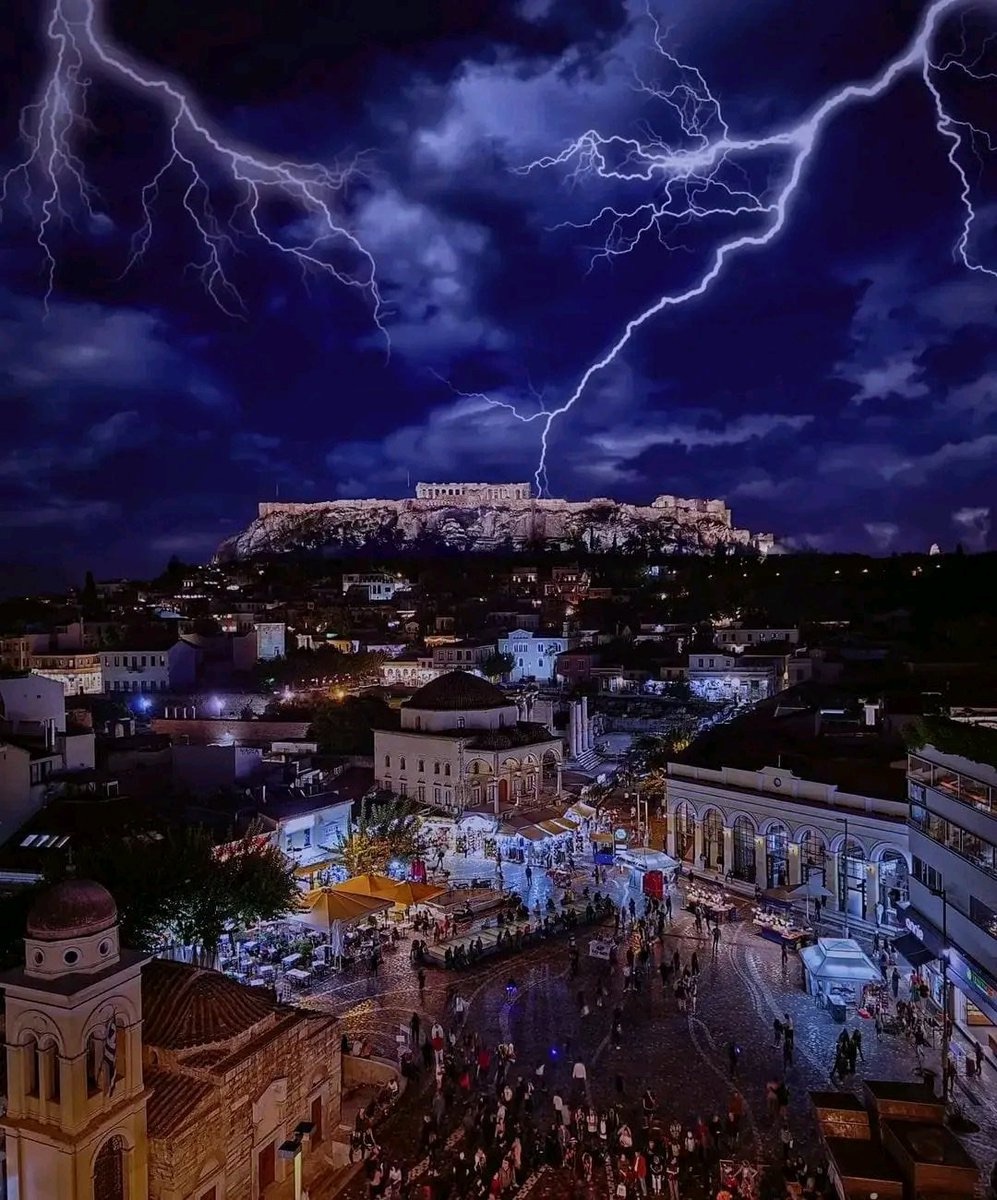
René Magritte Promenades d’Euclid 1955



Very strong
https://twitter.com/i/status/1728809581906661881



Both Tapper and Blitzer (not reindeer) have changed their tone a lot.
Israel rules millions of Palestinians under separate legal regime, holds 2000+ in admin detention w/o trial/charge, routinely tortures, & abuses kids in detention—part of its apartheid. My comments on the hostage/prisoners exchange on @CNN @wolfblitzer pic.twitter.com/EdN7Fb3s0k
— Omar Shakir (@OmarSShakir) November 25, 2023



Torah
“Zionists aim was to change the Jewish Identity. They wanted to transform the Jewish people from religion to a nationality.”
Israel was founded by a nationalistic movement that replaces the Jewish religion with Zionism. They wanted Jews to forget of G-d and Religion, & be united… pic.twitter.com/SnQlLfC0YD
— Torah Judaism (@TorahJudaism) November 26, 2023



Putin WWII
Living amongst the Russians, you realise just how offensive the Nazi Symbols worn by the Ukrainian Army are to them.
Putins' brother died of diphtheria during the Nazi Siege of Leningrad, his grandmother killed by Nazis in 1941, his uncles died fighting on the Eastern Front. pic.twitter.com/0j4WZOA0tq
— Chay Bowes (@BowesChay) November 26, 2023


“The main alleged crime for these detentions is stone-throwing, which can carry a 20-year sentence in prison for Palestinian children..”
• Israeli-Palestinian Swap Success and the Road Ahead (Sahiounie)
The first swap of Israeli hostages for Palestinian prisoners has been completed yesterday. The day prior to the swap was the American Holiday Thanksgiving. There are certainly Israeli and Palestinian families who are giving thanks to God for their loved ones’ freedom. The western media focused on the older Israeli women and small children being released. According to Israeli doctors, they were in acceptable condition after their ordeal in captivity. However, there was almost no western coverage of the Palestinian women and children released from an Israeli prison. Western audiences would have to first understand that Israel arrests young children for throwing a rock at an Israeli soldier. This information might make a western viewer appalled and disgusted with Israel.
Since the western media wants to portray the Israelis as a democracy, with shared values with the West, brutal undemocratic Israeli policies are just glossed-over. “The main alleged crime for these detentions is stone-throwing, which can carry a 20-year sentence in prison for Palestinian children,” said a report published in July by children’s rights organization, Save the Children. U.S. President Joe Biden made a short statement at the time of the release, in which he said it was his unproven theory that Hamas timed their attack on Israel because they wanted to stop the normalization of relations between Israel and Saudi Arabia, which Biden had been pushing for. Biden was putting Saudi Arabia in a very dangerous position, as perhaps being the cause of the October 7 attack, and ensuing bloodshed and destruction.
President Donald Trump had begun the Abraham Accords process which saw UAE, Bahrain, Morocco and Sudan sign a normalization agreement with Israel. Saudi Arabia was the prize that Israeli Prime Minister Benjamin Netanyahu was chasing, but the current war has put that on hold. These Arab countries have not suddenly found a friend in Israel, but they can benefit from a relationship with Israel, which has nothing to do with technology, trade or tourism. By being in an improved relationship with Israel, the Arab countries would have access to improved relations with the U.S. Congress, through AIPAC. The American-Israeli lobby group AIPAC is the reason Arab leaders would be willing to ignore Palestinian human rights.
Hamas caught the attention of the world on October 7 with a shocking attack on Israeli civilians and soldiers which killed 1,400 and about 240 were taken hostage into Gaza. The Israeli media painted the Hamas attack as an attempt to exterminate the Jewish people. While Hamas does not recognize the right for Israel to exist, the group issued a statement early on explaining they were not seeking to annihilate Israel, but fighting a war of resistance against Israeli occupation. The Geneva Convention guarantees the right for armed struggle against occupation, but prohibits targeting civilians.

“Genocide is not something that can be reconciled with the teachings of Jesus. The evangelicals will have to decide between worshipping Israel and worshipping Jesus.”
• Unintended Consequences of Israel’s Assault on Palestine (Paul Craig Roberts)
According to the Zionist propaganda Hamas is a collection of evil beasts. How do we reconcile this propaganda with the excellent condition of the Israeli women and children hostages released by Hamas? Despite the Israeli devastation of Gaza and murder of Palestinian women and children, Hamas has obtained a victory of sorts. Netanyahu’s vicious attack on civilians has exposed the underbelly of the Apartheid Zionist State. It is no longer possible for Israel’s apologists to maintain that “Israel can do no wrong.” For decades Israel has been slowly but surely squeezing Palestinians out of Palestine. The world has tolerated it, in part because the Zionist violence was limited in time and extent and the impossible situation papered over with talk about the “two-state solution.”
But this time, the violence is unlimited and has the declared aim of emptying Palestine of Palestinians with Gazans driven into tent cities in Eqypt’s Sinai Desert. It is not another case of emptying one specific village in the West Bank or a limited incursion into Gaza. This time the world is faced with a declared Zionist agenda of genocide. This makes a problem for the Western governments that pretend to support human rights and to deplore war crimes. It also makes a problem for American evangelicals known as “Christian Zionists.” Genocide is not something that can be reconciled with the teachings of Jesus. The evangelicals will have to decide between worshipping Israel and worshipping Jesus.
A consequence of Washington’s wars for Israel in the Middle East is that Western countries are now the homes of millions of Muslim refugees who take umbrage to the West’s support of Palestinian genocide. This introduces into the Western countries countervailing power at the street level to the Zionist lobby that focuses on controlling the governments. Western governments now have a new element of instability to manage, and the consequence could be a less one-sided stance toward Zionist Israel. Not all of Israel is Zionist. Netanyahu has minority support. The outcome could be different for Israel than Netanyahu and his US neoconservative allies intended.

“Saudi Arabia and China are opening a $7 billion local currency swap line.”
“China is using their US Treasuries and US dollar surpluses to loan them to Emerging Market trade partners of significance to CHINA!”
• What Are the Saudis Really Preparing for? (Luongo)
It was announced the other day that Saudi Arabia and China are opening a $7 billion local currency swap line. [..] They [the Neocons] most certainly are flying by the seat of their pants, Mark [his conclusion]. What is happening now is pure desperation as they try to figure out how to extend and pretend this war through the election cycle to maintain the possibility of the ages-old enmity versus Russia. But the KSA flip is real. Swap lines are a precursor to intervention. My tweet was high concept but it goes like this: 1) Announce swap lines 2) Start taking real amounts of yuan for oil 3) This breaks the peg of the Riyal to the USD when oil is relatively strong, not in crisis mode 4) The substitution of the CNY for the USD is existential for the US who then attacks the KSA exchange rate, pulling money out of the country… 5) SANCTIONS ON KSA. 6) Expanded swaps to convert USD encumbered assets with Riyal assets, once USD are verboten in KSA. 7) China provides them, with loans repayable in CNY.
[..] The announcement of the swap lines is likely a pre-announcement of an Economic Hitman-style attack on Saudi Arabia by the US. It’s not really that difficult to foresee. For historical context, Russia was hit hard in 2014/15 by the collapse in oil prices. In retaliation for “stealing Crimea” an attack on oil prices was organized by President Obama and the gaggle of usual suspects to trash the oil price. In June of 2014 oil closed at $112.36. And the price began dropping the first trading day of July 2014 and didn’t stop until the end of 2015. Saudi Arabia helped that process by expanding production, thinking they would take Russia’s market share as the Russian ruble collapsed and Russia’s foreign exchange reserves were drained. The key to the anticipated win was that Russian companies, mostly the big State Owned Enterprises like Gazprom and Rosneft, had a lot of dollar-denominated debt which was about to mature and needed rolling over.
So, the US sanctioned Russia such that companies like Gazprom couldn’t roll the debt over, because they couldn’t sell the bonds to US or European investors anymore. The current bondholders had to be paid off… to the tune of north of $50 billion in Q4 of 2014, and another $50 billions in Q1 2015. This “rollover risk” would plague the Russian government’s finances for the next 18 months as the price of oil dropped relentlessly. The Russian ruble dropped from the high 20’s/low 30’s versus the dollar rose to a high above 80 in late November, but it only happened after Putin personally ordered Bank of Russia President Elvira Nabiullina to let the ruble float. Before that there had been a soft peg to the US dollar in place, which was easy to maintain while oil was trading above $100 per barrel.
China stepped in at the height of the ruble’s collapse to give Russia a swap line between yuan and rubles. China paid off Gazprom’s debt. Russia paid them back in yuan, which they were going to get freely because of these swap lines then and Power of Siberia in the future. The US didn’t dare sanction China for this because of both the blowback onto our economy and would have been tantamount to declaring war. It’s also why China didn’t get even threatened with sanctions after Russia “invaded” Ukraine last year. That sweetheart deal for the gas now flowing to them through the Power of Siberia pipeline now makes a lot more sense. Personally I had misremembered it being signed in 2015, as a response to the crisis, but it was before the crisis even broke out.
That implies a few things: 1) the combination of events of early 2014 prompted the formulation of a coordinated attack on oil prices aimed at Russia for later that year and 2) that Putin anticipated it and opened up negotiations with Xi Jinping to get Power of Siberia built quickly. Nearly everything that’s happened since then is downstream of the events tracing back to early 2014 Russia survived that period of ‘rollover risk’ and in doing so created the blueprint for other countries to do the same. [..] Eric Yeung: China is using their US Treasuries and US dollar surpluses to loan them to Emerging Market trade partners of significance to CHINA! They are asking for yuan in repayment.
This stabilizes the yuan/usd exchange rates while China can and is rapidly expanding the money supply to deal with their sagging property markets as a result of the Fed’s aggressively tight monetary policy. In order for China to expand the yuan into the new dollar vacuum without also losing their gold (Luke Gromen’s point during the conversation), they have to create a demand cycle for their debt, keeping borrowing costs low. Since they have cross-currency swap lines with their SE Asian partners and offshore yuan settlement around the region, i.e. in places like Singapore, this is how they manage the expansion without creating a runaway inflation problem. Yuan replace dollars without a massive shift in exchange rates and/or bond yields.

“The data reportedly prompted the IDF to increase its alert level, which led to the Palestinian group abandoning the initial plan. The IDF eventually considered the intelligence warnings to have been a false alarm..”
• Hamas Attack Originally Planned For April (RT)
The Gaza-based Palestinian militant group Hamas originally sought to carry out its October 7 attack during the Jewish holiday of Passover, which fell on April 5 this year, Israel’s Channel 12 TV reported on Saturday, citing sources in the country’s military intelligence. The Israel Defense Forces (IDF) had caught wind of the planned assault, detecting the early signs of Hamas preparations, soldiers with the 8200 signal intelligence unit told the broadcaster. The data reportedly prompted the IDF to increase its alert level, which led to the Palestinian group abandoning the initial plan. The IDF eventually considered the intelligence warnings to have been a false alarm, the report added.
Hamas, the sources claim, focused on internal security and kept most of its members in the dark about subsequent plans, including the rescheduled incursion, which took place on October 7. According to Israeli media reports, surveillance units on the border with Gaza alerted the IDF to “unusual” Hamas training exercises some three months before the October attack, but their concerns were reportedly dismissed as “fantasies.” On Friday the Financial Times also reported, citing sources, that Israeli border sentries had compiled a detailed file on the then-looming Hamas attack and presented it to the highest-ranking intelligence officer in the southern command, weeks before it took place.
The document reportedly contained “specific warnings,” namely plans to breach the border at multiple points and seize local settlements, according to the outlet. The IDF neither confirmed nor denied the existence of the ignored intelligence, when approached by the Financial Times. Earlier, the Israeli newspaper Haaretz had cited an unnamed female soldier who blamed institutional sexism in the ranks for the lack of attention to reports from its border sentries. The October 7 Hamas attack claimed the lives of about 1,200 Israelis, mostly civilians. West Jerusalem responded with heavy bombardments of Gaza, followed by a ground operation. The death toll on the Palestinian side has since surpassed 14,800, according to officials in the enclave.

“..the release has become possible thanks to “direct agreements between Russian representatives and Hamas.”
• Russians Released By Hamas Outside Prisoner Swap Deal – Zakharova (TASS)
A hostage with the Russian passport has been released as a result of direct agreements with Hamas, not under the prisoner swap deal, Russian Foreign Ministry Spokeswoman Maria Zakharova said. “The efforts Russian diplomats are making in contacts with Hamas concerning the release of hostages are yielding results. Today, a holder of the Russian passport was released and handed over to the Red Cross. Russian diplomats will visit him as soon as it is possible,” she wrote on her Telegram channel. According to the spokeswoman, the release has become possible thanks to “direct agreements between Russian representatives and Hamas.” “These efforts will continue,” she added.
Taher al-Nunu, a spokesman for senior Hamas official Ismail Haniyeh, told TASS earlier in the day that Hamas had released a Russian national and transferred him to the International Committee of the Red Cross (ICRC). Russian presidential envoy for the Middle East and African countries and Deputy Foreign Minister Mikhail Bogdanov told TASS in late October that Hamas had promised to answer Russia’s request to release eight Russian nationals who were held hostage. Hamas announced on November 22 that an agreement on a four-day humanitarian ceasefire in the Gaza Strip had been reached through the mediation of Qatar and Egypt. The agreement stipulates the release of 50 women and children under the age of 19 who are held in Gaza in exchange for the release of 150 women and children under the age of 19 from Israeli prisons.

“Gone is all pretence that the EU and NATO pursue different strategies.”
“If painting Russia as a threat has long been used by the U.S. to keep NATO alive, in more recent years it has been exploited to unify the foreign and defense policy of EU member states..”
• The United Eunuchs of Europe (Ruggeri)
Whether further expansion is good or bad for the EU has become the modern equivalent of the old Byzantine discussion over the sex of angels, and while no agreement can be reached, the process has largely stalled after the biggest wave of new members joined in 2004 and Croatia in 2013. So why has it topped the agenda of so many Eurocrats in the last two years? Mainly because supporters of expansion hoped that they could leverage on the unity that the EU mustered vis-à-vis the conflict in Ukraine to push through a a proxy imperialist project fuelled by Washington’s magical thinking. The cornerstone of this project was the full capture of Ukraine whose NATO-trained army should have dealt a decisive blow to Russia. As we know, things aren’t exactly going to plan and that unity of purpose now seems as precarious as Ukraine’s future.
Ukraine had been promised EU candidate status for years and finally received it in return for a blood sacrifice. Obviously, it doesn’t qualify for membership, and the prospect of sitting in a crowded waiting room with other candidates for the foreseeable future isn’t exactly worth dying for. Brussels has to first find and then dangle a more appealing carrot at a time when opinion polls show that support for Ukraine is waning. After coming to the defence of the U.S. ‘rules-based-order’ the EU has a bag full of IOUs, a weakened economy, and Borrell’s garden of earthly delights increasingly resembles the dark panel of Hieronymus Bosch’s famous triptych. One may think that discussing EU enlargement while the bloc faces major crises that are stress-testing it to break-point is the epitome of insanity.
Actually, some commentators have already drawn parallels between the EU’s leadership and Nero fiddling as Rome burned. But allegedly Nero did something else besides fiddling, he blamed Christians for the fire. Offering an enemy within or an enemy without, is a tried and tested tactic to crush dissent and consolidate power. And that is exactly what Germany’s foreign minister Annalena Baerbock tried at a recent conference in Berlin dedicated to EU enlargement. She told 17 foreign ministers from EU and candidate countries, including Ukraine’s Dmytro Kuleba, that the EU must expand to avoid making everyone vulnerable. “Putin’s Moscow will continue to try to divide not only Ukraine from us, but also Moldova, Georgia and the Western Balkans. If these countries can be permanently destabilised by Russia, then that also makes us vulnerable. We can no longer afford grey areas in Europe”. Whatever happened to promises of economic growth, investments and access to a wealthy market? As they all sound pretty hollow in 2023, Baerbock invokes the bogeyman. Gone is all pretence that the EU and NATO pursue different strategies.
With the door to NATO closed to Ukraine and Washington shifting its focus to the Middle East and the Asia-Pacific, the burden of supporting Ukraine “to defend Europe” has been dumped on the EU. If painting Russia as a threat has long been used by the U.S. to keep NATO alive, in more recent years it has been exploited to unify the foreign and defense policy of EU member states. Washington promoted and facilitated a vertical consolidation of power in the EU in order to outsource to Brussels some of the policing and punitive functions that enable its global capital accumulation and underpin its hegemony. According to its calculus, dealing with one collective vassal, the EU, would be easier than managing several squabbling and competing European vassals. This strategy reflects Washington’s poor grasp of Europe’s history and complexity and that’s why it is unlikely to produce the desired results, especially since European interests were sacrificed at the altar of American ones.

“The people in power in Ukraine got there accidentally – they are shallow, insufficiently experienced, perceiving some momentary tactical successes as successes of a strategic nature..”
“Zelensky is now being abandoned by his staff, his generals, the Ukrainian people, and the international community as a puppet that has lost all use. If questioned, Boris Johnson will most likely pretend to not even remember Zelensky’s name.”
• Zelensky & West Equally Responsible for Killing Peace Deal (Sp.)
“Russia‘s original terms were very fair: number one— no NATO weapons would be located in Ukraine, which would put Russians in danger; and, second, no Nazi genocidal maniacs would be in political positions to continue slaughtering innocent Russians, or outlawing the Russian language and culture in Ukraine. Any reasonable person and nation would’ve accepted these terms,” argued Bennett. Meanwhile, some Russian observers are wondering what BoJo promised the Kiev regime to cause them to rush to nix the deal and throw all their resources into the conflict. Apparently, the British prime minister vowed all-out military support and money from the West. Meanwhile, judging from other Western leaders’ rhetoric, Johnson was not alone in derailing the deal. “This war will be won on the battlefield,” European Union top diplomat Josep Borrell tweeted in April 2022, pledging hundreds of millions of euros for Kiev.
The same month, US Secretary of Defense Lloyd Austin claimed that Washington wanted to see “Russia weakened to the degree that it can’t do the kinds of things that it has done” in launching the special military operation. He argued that Russia should “not have the capability to very quickly reproduce” manpower and equipment. The US has disbursed over $100 billion in support for Ukraine’s military effort since then. However, a chorus of Western military experts warned Washington from the very beginning that Russia has considerably more resources in every respect, making it virtually impossible for Ukraine to win. Ukrainian officials could have been aware of this balance of forces since the inception of the conflict, yet still they bought into the Western plot.
Sergey Tsekov, a member of the Russian Federation Council Committee on International Affairs, believes that Kiev decided to reject peace with Moscow in 2022 due to a lack of experience. “The people in power in Ukraine got there accidentally – they are shallow, insufficiently experienced, perceiving some momentary tactical successes as successes of a strategic nature,” Tsekov told the Russian press. Per him, many in Ukraine now regret that they failed to resolve the conflict diplomatically at the very beginning. [..] in 2002, then-Ukrainian President Leonid Kuchma announced the nation’s goal of “eventual NATO membership” which was reflected in the June 19, 2003, version of law on the foundations of Ukraine’s national policy. In 2010, the government of President Viktor Yanukovich scrapped the plan, embracing the idea of military neutrality.
Following the Western-backed 2014 coup d’etat in Kiev, the nation’s Verkhovna Rada, controlled by Ukrainian ultra-nationalists, passed a law reinstating membership in NATO as Ukraine’s strategic objective. In 2019, a corresponding amendment to Ukraine’s Constitution entered into force. Arakhamia failed to explain to the Ukrainian press why the Ukrainian delegation – despite all the obstacles – signed preliminary peace agreements with Russia in Istanbul last year. In June 2023, Vladimir Putin showed the draft of the Istanbul agreement on the Ukraine settlement to an African delegation. “Here it is! It exists!” Putin said, showing the document signed by Ukraine. “And it is called accordingly – the treaty on permanent neutrality and security guarantees for Ukraine. Exactly about guarantees. Eighteen articles,” the Russian president underscored.
No matter how much the West is guilty for derailing the Russo-Ukrainian peace deal, the Zelensky regime is no less responsible for opening the door to bloodshed in Ukraine, per Bennett. “Ukraine is destroyed,” the expert said. “Its military is completely dissolved, and every Ukrainian citizen is going to turn against the Ukrainian political leadership for this unnecessary and destructive war, which should never have happened. Zelensky may very well be assassinated or overthrown by a coup within his own country and prosecuted, and executed as an international war criminal.” “Zelensky is now being abandoned by his staff, his generals, the Ukrainian people, and the international community as a puppet that has lost all use. If questioned, Boris Johnson will most likely pretend to not even remember Zelensky’s name.

“Zelensky accused Russia of “exploiting various challenges in the world” to “divert attention from any assistance” to his country, adding that “responsible states” are doing everything they can to return that focus.”
• Ukraine Needs Three Victories – Zelensky (RT)
Ukraine needs to achieve three key breakthroughs in negotiations with Western allies to maintain crucial support, Ukrainian President Vladimir Zelensky admitted during a press conference on Friday. Among the challenges he listed were the approval of large aid packages from the US and the EU. Zelensky accused Russia of “exploiting various challenges in the world” to “divert attention from any assistance” to his country, adding that “responsible states” are doing everything they can to return that focus. “We need three victories. The first is with Congress. It’s a challenge. It’s not easy,” Zelensky said. The second ‘victory’ to be achieved is to secure €50 billion ($55 billion) in aid from the EU, which has not yet been approved.
“Not everyone in the EU is ready to support this package today. Our task is to make sure everyone supports this package,” the president stated. The third success Ukraine seeks is a decision by Brussels to start negotiations on Ukraine’s EU membership, Zelensky said, calling it “a significant motivational step.” Earlier this month, US President Joe Biden’s administration failed to push a $105 billion spending package through Congress, with much of that money intended for Kiev. Instead, the president had to sign a stopgap funding plan excluding Ukraine assistance to avert a government shutdown. At about the same time, the EU’s €50 billion package of loans and grants was blocked, due to objections from member states including Hungary.
As for negotiations on Ukraine’s accession to the EU, according to Reuters, Brussels could postpone formal membership talks, which were scheduled for December, until March 2024, as some leaders have proposed returning to the issue only after the European Commission has had a chance to assess whether Kiev has met all the conditions. Kiev’s troops continue to suffer significant losses on the front line. According to Russian Defense Minister Sergey Shoigu, the Ukrainian army has lost more than 13,700 soldiers and 1,800 tanks and other heavy weaponry since the beginning of November. As of late October, Moscow estimated that Kiev had suffered over 90,000 casualties since the beginning of the June counteroffensive.

“Therefore, we must face reality. We must switch to Plan B,” Orban reiterated, adding that the European Union currently has no such plan..”
• ‘Russia Will Not Lose’ – Orban (RT)
Hungarian Prime Minister Viktor Orban said that the US and EU strategy of funding Ukraine’s battle with Russia, in the hope that an unlikely battlefield loss will bring about a regime change in Moscow, is futile. Instead of trying to localize the conflict, the West decided to escalate, making it global, Orban said last week at an event celebrating the 90th anniversary of the Swiss conservative weekly Weltwoche in Zurich. “What was the strategy of the West in that war? I’m simplifying it a little bit, but this is the fact. Our strategy was that the Ukrainians will fight and will win on the front line. The Russians will lose… and that loss will create a change in Moscow,” he explained, according to a video of the speech published by Zoltan Kovacs, a spokesman for the Hungarian government on Sunday.
“That was the strategy: We finance, the Ukrainians fight and die,” he added. However, he said, “where we are now, it is obvious that the Ukrainians will not win on the front line.” “There is no solution on the battleground. The Russians will not lose. There will be no political change in Moscow. This is the reality,” the Hungarian leader stated. “Russia will not lose, and nothing will change in its policy. Therefore, we must face reality. We must switch to Plan B,” Orban reiterated, adding that the European Union currently has no such plan. Last week, Orban reportedly demanded that the EU re-examine its strategy, warning he would oppose any further aid unless the bloc’s leaders make sure their objectives are “realistically attainable” without continued US support. “The European Council must have a frank and open discussion on the feasibility of the EU’s strategic objectives in Ukraine,” Orban wrote in a letter to European Council President Charles Michel, according to Politico.
From the very onset of the Russia-Ukraine conflict, the Hungarian PM has been calling for a negotiated solution, rather than prolonging the crisis and risking further escalation. While he condemned Moscow’s actions, he still repeatedly clashed with Brussels, saying that sanctions against Russia are destroying European economies. Kiev has suffered “colossal” casualties at the front, with at least 13,700 troops and approximately 1,800 tanks and other heavy weaponry lost this month alone, according to Russian Defense Minister Sergey Shoigu. In total, according to Russian estimates, Kiev has lost more than 100,000 troops since its failed counteroffensive began in early June. Even Ukraine’s top general, Valery Zaluzhny, previously admitted that the conflict with Russia had reached a “stalemate” and that his armed forces would likely not achieve a breakthrough in the confrontation anytime soon.

““If the military leadership cannot provide any plan for 2024 and all their proposals for mobilization boil down to the fact that more people are needed without any … changes to the Armed Forces system, then this [military] leadership has to go..”
• Ukrainian Military Leadership Has No Plan For 2024 – Senior MP (RT)
The Ukrainian military leadership has absolutely no strategic plan for the ongoing conflict with Russia in 2024, Mariana Bezuglaya, the deputy head of the Ukrainian parliament’s security, defense and intelligence committee, said on Sunday. The top brass only want to mobilize tens of thousands of people every month without a clear understanding of what should be done in Kiev’s ongoing conflict with Moscow, she added. “The commander-in-chief of the Ukrainian Armed Forces has been unable to provide a [strategic] plan for 2024,” Bezuglaya wrote in a post on her Facebook page, referring to Ukraine’s top military commander, General Valery Zaluzhny. The general has absolutely no concept of further conflict, she claimed, adding that he has no plan for any type of warfare, “either large or small… asymmetrical or symmetrical.”
Such a stance by the military leadership has been a major setback for the lawmakers planning the nation’s budget for the next year, the senior MP said. The problems had been growing both in parliament and at the military leadership’s HQ, at least since the summer, Bezuglaya revealed. At that time, the Ukrainian military was in the midst of its much-touted large-scale military offensive launched in early June. The operation was largely unsuccessful as it did not allow Kiev’s troops to gain any major territories but led to heavy losses on the Ukrainian side in both personnel and equipment, including dozens of Western-supplied hardware like tanks and infantry fighting vehicles. According to Bezuglaya, Zaluzhny and other top commanders have so far failed to present any detailed plans for future training, troop rotation, or for the funding needed for some new brigades they supposedly planned to form.
Instead, the Ukrainian military “simply said they would need to draft no less than 20,000 citizens every month,” the senior MP added. “If the military leadership cannot provide any plan for 2024 and all their proposals for mobilization boil down to the fact that more people are needed without any … changes to the Armed Forces system, then this [military] leadership has to go,” Bezuglaya, who is a member of President Vladimir Zelensky’s ‘Servant of the People’ party, said. The presidential party’s faction in parliament refused to provide any comments on Bezuglaya’s words when approached by the Ukrainian ‘Pravda’ newspaper. In early November, Zaluzhny admitted in an interview with The Economist that the situation on the frontlines was essentially a World War I-style stalemate.
He also said that Russia had an upper hand in that sort of warfare due to its superior personnel reserves and vast material resources. This assessment was later rejected by Zelensky. The president also warned the nation’s military leadership to stay out of politics or risk harming “the unity of the nation.” Earlier this week, Russia’s foreign intelligence service (SVR) reported that Ukraine’s Western backers have encouraged Kiev to expand draft efforts and enlist the elderly, teenagers, and women into the army. The new draft is supposedly needed to replace the heavy losses Kiev’s troops suffered in the largely unsuccessful summer counteroffensive.

“Scholz and his cabinet have absolutely no policy plan and are “completely… mindless..”
• Germany In ‘Serious Crisis’ – Bavarian Leader (RT)
German Chancellor Olaf Scholz and his cabinet have led Germany into a “serious national crisis,” Markus Soeder, the prime minister of the nation’s most populous state, Bavaria, told journalists on Saturday. Berlin can now hardly find a way out of this predicament, the politician warned, adding that the government’s “budget emergency” would likely turn into another burden for ordinary Germans. His words came as the federal government announced the lifting of energy-price controls by the end of the year. Limits on electricity and gas prices were introduced in 2022 to protect households and businesses from soaring prices of gas and electricity as Germany was actively slashing energy imports from Russia, along with many other EU nations. The measure was introduced in response to the outbreak of the conflict in Ukraine.
The brakes were to remain in place until at least March 2024, but Berlin had to change its plans after the German Constitutional Court blocked its attempt to transfer €60 billion ($66 billion) from the Covid-19 pandemic fund to other projects. According to Soeder, the lack of funding and the corresponding budget crisis are “nothing but this government’s emergency.” Scholz and his cabinet have absolutely no policy plan and are “completely… mindless,” said the politician, who also leads Bavaria’s biggest party – the Christian Social Union (CSU). “This government has gone bankrupt,” he added. “Basically, we have a government that is just reeling,” he told journalists on the sidelines of his party’s meeting in Nuremberg ahead of the EU parliament elections.
Soeder also branded the declaration of the “budget emergency” by Berlin as a sign of the “complete helplessness” of the government coalition. The head of Bavaria in particular criticized the federal government’s strategy of combating energy price hikes resulting from forgoing Russian energy supplies with mere subsidies. “The idea of just subsidizing electricity prices doesn’t work. A different energy policy is needed. That is the core of the problem,” he said, demanding that Berlin reverse its nuclear power plants’ phaseout in particular. Now, removing the energy price brakes would lead to a high level of uncertainty for the economy and send electricity prices for both citizens and companies up, he warned.
Last year, Germany and the broader EU faced an energy crisis, largely caused by the loss of Russian gas imports due to Ukraine-related sanctions against Moscow. Berlin managed to substitute some of the gas it had previously bought from Russia, but high energy costs still weakened Germany’s economy and pushed up inflation. Germany fell into a technical recession in the first quarter of 2023 and demonstrated little recovery in the following two quarters.

“He also insisted that introducing compulsory military service in Germany is necessary..”
• German Troops Would ‘Only Last Two Days in Battle’ Due to Ukraine Supplies (Sp.)
Berlin has provided Ukraine with large amounts of munitions and military hardware, including main battle tanks and air defense systems, following the escalation of the Ukrainian conflict in February 2022. The battle readiness of the German Armed Forces has been severely weakened by shortages caused by continued supplies of hardware and ammo to Kiev, German MP from the opposition Christian Democratic Union (CDU) Johann Wadephul has told DPA. “Crucial [German] troop units can only last a maximum of two days in a battle [due to these shortages]. And that is a catastrophic finding overall,” Wadephul said. “Anyone who even talks about being ready for war, but expects the Bundeswehr to be at least ready to defend itself, should have ensured that such a bad situation does not occur. Unfortunately, the opposite is the case.”
The politician argued that the process of improving the Bundeswehr’s combat capability is slow and blamed the country’s Defense Minister Boris Pistorius for this state of affairs. “Even when it comes to replacement procurement, the Bundeswehr is actually making a loss. As correct as the donations to Ukraine are in terms of material and ammunition, in the current security situation, it is unacceptable that there is no compensation,” Wadephul said. He also insisted that introducing compulsory military service in Germany is necessary, saying: “We will not be able to ensure effective national defense without the necessary personnel.” Ukraine received large quantities of weapons and munitions from Germany and other NATO states since the escalation of the Ukrainian conflict last year.

“..the US Federal Reserve, the European Central Bank, and the Bank of England should curb their enthusiasm for shrinking their balance sheets..”
• World Facing ‘Debt Tsunami’ – Bloomberg (RT)
Sovereign bond sales could increase further next year as budget deficits balloon across the developed world, Bloomberg reported this week. According to the outlet’s analysis, this comes at a bad time as central banks have accelerated the reduction of huge bond holdings amassed through quantitative easing. “This double whammy means bond yields, particularly at the longer end of the curve, are set for a difficult 2024,” Bloomberg wrote, suggesting the US Federal Reserve, the European Central Bank, and the Bank of England should curb their enthusiasm for shrinking their balance sheets. According to the Bank of America, cited in the report, Treasury bond issuance is expected to reach a record $1.34 trillion next year. Meanwhile, the US deficit in 2026 is projected to climb towards $2 trillion.
The report indicated that multiple factors affect bond values, but “the one constant in an ever-changing world is rising debt issuance.” The US Fed has reportedly been trimming its balance sheet by $95 billion a month since June 2022, reducing it so far to $7.8 trillion, nearly double the pre-pandemic $4 trillion mark. The risk remains that the combination of monetary tightening by the Fed with expanding US Treasury supply will prove “deadly,” Bloomberg wrote. The same could be observed in the EU where Germany, France, Italy and Spain are expected to increase bond sales to more than €1.1 trillion ($1.2 trillion) next year. The European Commission is also expected to issue €150 billion of bonds.
Even a small reduction of QE reinvestment looks ill-advised, according to the report, while it’s “the first line of defense” for the euro area that allows maturing German debt to be recycled into buying Italian bonds. Meanwhile, UK government bond supply is expected to be around £260 billion next year, a jump of 20% from this year. The Bank of England has been reducing at double the pace of the Fed and ECB. “There’s a growing perception that central banks are at the zenith of the interest-rate hiking cycle, but reducing QE bond portfolios would continue to tighten monetary conditions,” Bloomberg wrote, noting that the potential global growth slump next year may come shortly before rate cuts or a pause in balance sheet reduction, or probably both.

The UK Supreme Court in the Rwanda case has stated that it’s the court, not the government, that decides if a deportation is lawful. It must apply that to the Assange case if and when that comes before the court.
• UK’s Rwanda Deportation Ruling Offers Assange Hope (Craig Murray)
The judgment of the Supreme Court on the illegality of deportation of asylum seekers to Rwanda was given massive publicity in connection with the sacking of Home Secretary Suella Braverman, but in fact it is a decision of much wider significance. It also has great relevance to the coming High Court hearing on Julian Assange, both in terms of the arguments, some of which are common to both cases, and the stance of the judges, some of whom are also common to both cases.
[..] The Home Secretary’s appeal against the Appeal Court judgment explicitly argued that the court should defer to the executive’s judgment of the value of these assurances, which the Supreme Court summarises as the Home Secretary criticising the Appeal Court for: giving insufficient weight to H.M. Government’s assessment of the likelihood of the government of Rwanda abiding by its assurances The Supreme Court rejects the notion that diplomatic assurances provided to the executive outweigh an assessment by the court itself of the true situation. The Supreme Court states: The government’s assessment of whether there is such a risk is an important element of that evidence, but the court is bound to consider the question in the light of the evidence as a whole and to reach its own conclusion. This is a definitive position, and a very strong one, in the debate about the role of diplomatic assurances in deportation proceedings.
The reason this is so vital to the Assange case, is that the court of first instance decided against Assange’s extradition, due to the combination of his health and the appalling maximum security conditions to which he would be subjected in the United States. On Appeal by the government of the U.S., Lord Chief Justice Burnett rejected this argument, primarily on the basis of diplomatic assurances as to Assange’s treatment, received in diplomatic notes submitted at the appeal stage. Because they were not submitted to the original hearing but only at Appeal, Assange’s team had no opportunity to question these diplomatic assurances or cross-examine on their value. Lord Chief Justice Burnett rejected this as having any weight, on the grounds that it was for the executive to decide the value of diplomatic assurances.
Note that Lord Chief Justice Burnett was also the dissenting judge who found for the government at appeal in the Rwanda case, where again he argued that the diplomatic assurances from the Rwanda government should simply be accepted on the executive’s evaluation. That is the classic executive position in the whole diplomatic assurances debate – and the Supreme Court has just unanimously and fizzingly rejected Burnett’s argument. If it is for the court and not the executive to investigate and determine the value of diplomatic assurances in the Rwanda case, then it must also be for the court to examine and determine the value of diplomatic assurances in the Assange case. At no point in the Assange process has any court undertaken this duty, or the defence been offered any opportunity to challenge the veracity of the diplomatic assurances.
That must now play a crucial role in consideration of the Assange case going forward. It is Burnett who granted the US appeal against the refusal to extradite Assange. Burnett is the best friend and former college flat mate of Tory Minister Alan Duncan, who called Julian “a worm” in parliament and who was in direct charge of the operation to remove Julian from the Ecuadorean Embassy. The other judge whose arguments were resoundingly rejected by the Supreme Court is Jonathan Swift, who found for the Home Secretary at first instance in the Rwanda case. Swift is also the judge who dismissed Assange’s 150-page appeal in three double-spaced pages and attempted to limit any future hearing to half an hour. Again as previously explained here, Swift is a former barrister for the security services, which he said were his favourite clients.






Jan 6
Still blows my mind Tucker was fired right before airing an interview w/US Capitol Police Chief Steven Sund who said the J6 “crowd was *filled* with federal agents”
J6 Committee, Pelosi, and McCarthy never brought up that testimony
I wonder why!
pic.twitter.com/lbAN1j6snL— DC_Draino (@DC_Draino) November 26, 2023



Dowd
"It is literally a prison planet."
Former Blackrock portfolio manager, Ed Dowd (@DowdEdward), explains why every last remnant of your freedom depends on widespread rejection of CBDC.
"Once the central bank digital currency is linked to all your credit cards and bank accounts,… pic.twitter.com/z9FGSGduXH
— Wide Awake Media (@wideawake_media) November 26, 2023







Funghi
Found largely in temperate and tropical climates, currently there are more than 112 known species of bioluminescent fungi, out of 150,000 fungal species described to date
[📹 BBC Planet Earth II]pic.twitter.com/PgrkARLbfq
— Massimo (@Rainmaker1973) November 26, 2023


Monastiraki and the Acropolis


Support the Automatic Earth in wartime with Paypal, Bitcoin and Patreon.









